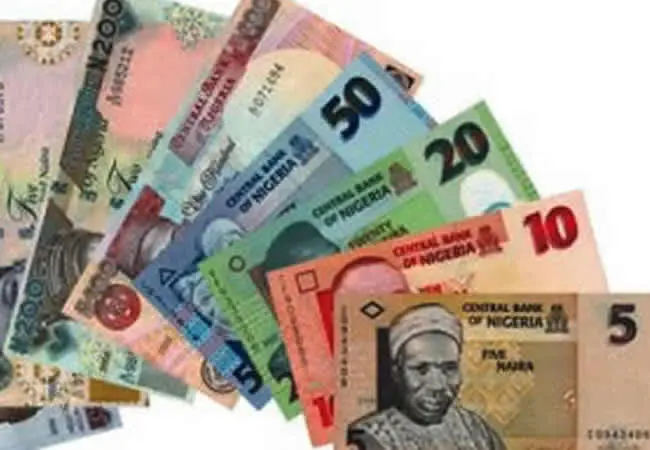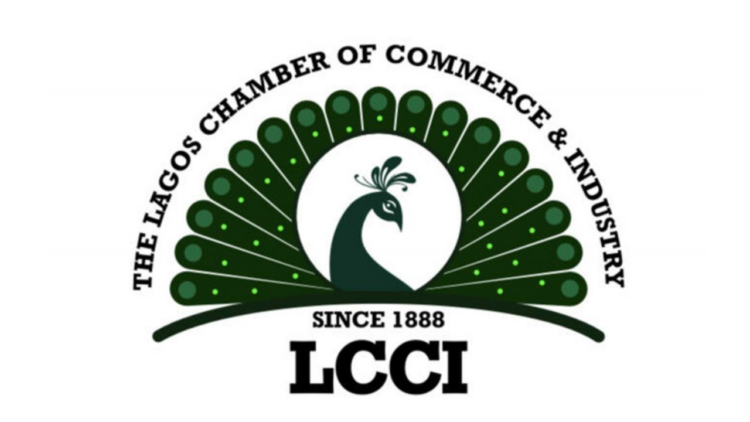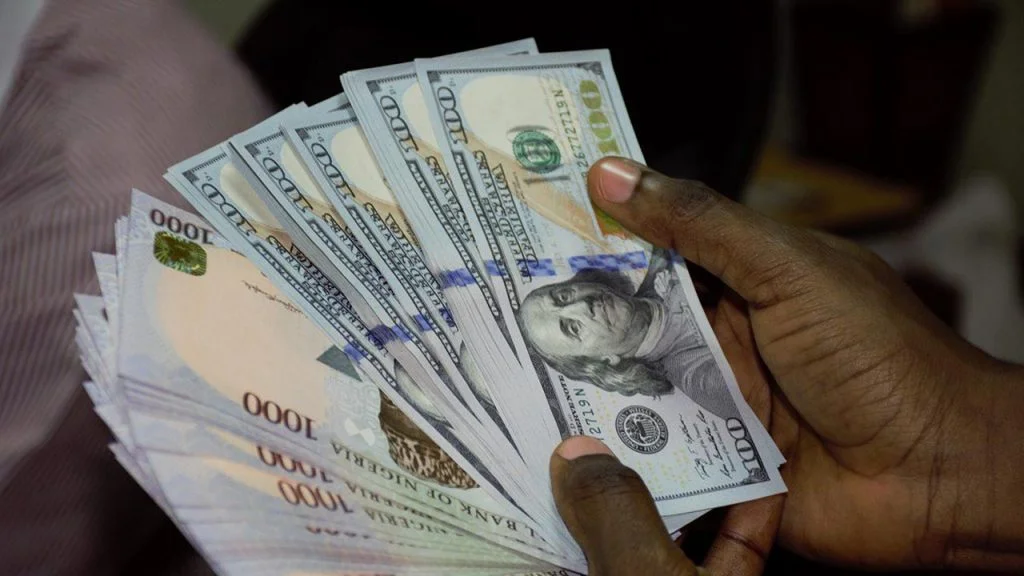Business
Namibia’s Central Bank Governor talks maintaining Economic Stability

Ahead of Namibia’s new energy sector developments, Johannes Gawaxab, Governor of the Bank of Namibia, outlined efforts to establish an effective fiscal regime in an exclusive interview with Energy Capital & Power last September
WINDHOEK, Namibia, February 5, 2024/ — The Bank of Namibia is seeking a balance between economic growth and fiscal stability, having implemented several lending rate increases in the past year to steer off inflation. The central bank is aiming to establish an effective and transparent fiscal regime for the country’s extractive industries – ahead of new developments in oil and gas exploration and green hydrogen production – along with a clear and stable local content framework that supports the growth of local businesses.
Energy Capital & Power spoke with Johannes Gawaxab, Governor of the Bank of Namibia to understand how the bank is supporting the country’s burgeoning oil and gas industry to advance socioeconomic development.
What is the Bank’s operational scope and how does it support socioeconomic development in Namibia?
The Bank of Namibia’s most important role in promoting socioeconomic development is to maintain monetary and financial stability. In other words, its monetary policy seeks to balance price levels with income levels and encourage output levels that will increase employment in the long term. This means that inflation is kept low over both the medium and long term, and that the financial system remains secure and steady.
High inflation destroys the purchasing power of the money in an individual’s pocket, leads to the misallocation of resources, and redistributes income towards the rich, who can better hedge themselves against inflation through, for instance, ownership of property and shares. High inflation also eventually leads to much higher interest rates once savers fully anticipate the inflation and demand an interest return high enough to compensate them for the erosion of the purchasing power of their savings. The Bank, therefore, combats inflation with its monetary policy, aided by the one-to-one exchange rate link between the Namibia Dollar and the South African Rand since the South African Reserve Bank also targets low inflation. This link makes it necessary for interest rates in Namibia to broadly follow those of South Africa, as significant interest differentials may trigger capital flows to South Africa.
However, the Bank of Namibia has a degree of freedom to set its policy rate somewhat higher or lower than South Africa, mindful of domestic economic conditions. As an example, Namibia’s policy interest rate is currently slightly lower than South Africa’s to support its domestic economy. However, it is set responsibly to maintain enough foreign reserves to meet international obligations without risking the exchange rate peg. A stable financial system, where people have confidence that their deposits are safe and that financial institutions are properly supervised, is equally necessary for socioeconomic development. Otherwise, confidence evaporates, uncertainty paralyzes the economy, and development is stunted. The Bank of Namibia, therefore, plays its part in ensuring a stable financial system in our country and is inter alia responsible for bank supervision and macroprudential oversight.
At the micro level, the Bank of Namibia provides seed capital to the Development Bank of Namibia (DBN) for funding small and medium-sized enterprises (SMEs) to support socioeconomic development. The Bank has also initiated the SME Economic Recovery Loan Scheme in conjunction with the Ministry of Finance and Public Enterprises for eligible SMEs to obtain working capital to revive their operations after the devastation of the COVID-19 pandemic. The Bank also provides advice and applied research capabilities to several government institutions, not least in the energy sector, in order to ensure Namibia optimizes the benefits from these burgeoning industries. Furthermore, the Bank continually develops its staff through appropriate training and exposure and provides scholarship opportunities to Namibians in relevant fields for our economic development.
How would you summarize the Bank’s most recent Financial Stability Report?
Overall, the financial system in Namibia remains sound, profitable and with no disruptions, despite the economy performing below potential. Both household and corporate debt increased during the reporting period; however, risks to financial stability remained moderate. The banking sector, in particular, remained liquid, profitable, and well-capitalized, with capital levels well above the minimum prudential requirements. Despite the current inflationary pressures, the banking sector’s asset growth outpaced the prevailing inflation rate, which bodes well for financial stability.
Similarly, the non-bank financial institutions sector remained resilient despite the macroeconomic headwinds. The payment system and infrastructure remained stable, while efficiently contributing towards reliability in payments in order to facilitate financial stability in the country. Overall, risks to domestic financial stability remained stable; however, some risks are anticipated to increase on the back of uncertainty in the global macroeconomic environment, particularly global geopolitical tensions such as the war in Ukraine, slow recovery in China, and the impact of contractionary monetary policy to fight inflation, which appears to be more intractable than previously expected.
How can Namibia implement local content and ownership requirements, while maintaining an attractive environment for foreign investment?
Foreign direct investment is better secured and sustainable if it contributes to broad-based benefits to the local economy. Local content, where such investment makes use of locally available goods and services as well as skills, will ensure sustainability and mutual benefit between the country and the investors. Investors accept this fact, and the balance needed is in terms of flexibility when goods and services, or skills are not locally available. If so, businesses should be able to acquire such goods and services or skills with ease from elsewhere.
It is very important that local content comes at a competitive price and with competitive quality and reliability. Otherwise, the investments will just go elsewhere in the world. In general, our regulatory and business environment should be friendly to all investors, whether local or foreign. After all, they have to take the risk that goes with investment. However, everybody should also pay their fair share of tax, so it is sensible to have uniform tax rates across local and foreign-owned firms. Thus, as a country, Namibia should facilitate that where capacity does not exist, it is created over time, in terms of increasing capacity for local content, skills and competitiveness. In order to stay competitive in emerging industries, it is essential to strike a balance between regulating and promoting local content. This requires designing a policy that supports fairness, accessibility, and growth for local businesses. That would be a sustainable solution, especially in high unemployment environments such as Namibia.
How should Namibia position itself within global decarbonization efforts and a shift away from fossil fuel lending?
The shift from fossil fuels to renewables is gradually taking place. However, it is reasonable to also continue investing in fossil fuel development, as consumer preferences, the stock of transport equipment and the energy infrastructure cannot be changed overnight. At the same time, investment in carbon-saving areas such as green hydrogen is the way to go for the long haul. Namibia is seeing action in both areas. Like many countries on the continent, Namibia is confronted by an energy deficit, which for the short and medium term, can only be met through a mixture of carbon fuels and green sources. In the domestic financial sector, we have observed some activities, with the local banks soliciting funds through green bonds aimed at being disbursed for renewable energy projects such as solar PV and wind farms.
The energy sector is important for the Namibian economy and ensuring energy security is of paramount importance. The Bank acknowledges this importance, and in line with the discoveries that were announced last year, the Bank themed its 2022 Annual Symposium, “Maximizing economic growth from renewable and non-renewable energy sources in Namibia.” The symposium brought together key role players in the sector and the key recommendations from the symposium reflected the importance of building accountable and transparent resource governance institutions to avoid the resource curse, ensuring an effective fiscal regime in the extraction industry, and providing a clear and stable local content regulatory framework.
How competitive is Namibia’s financial market?
Currently, the real effective exchange rate of the Namibia Dollar is undervalued by historical standards. Therefore, production in Namibia is more competitive in international markets than before. The great road system, recent improvements to and expansion of the Port of Walvis Bay, sound macroeconomic policies, and due attention to the environment that Namibia is known for contribute to competitiveness. We are excited by the oil and gas developments, and also by green hydrogen, the expansion of solar power capacity, and developments around lithium and other materials that are helpful in the transition to low-carbon energy. We remain broadly aligned with and committed to Vision 2030.
As for the future of domestic financing, our government is committed to living within its means and managing its deficit so that it can be readily financed, with the lion’s share financed in the domestic financial market. The COVID-induced large deficits of 2020/21 and 2021/22 have made way for much smaller ones, with further deficit reduction in the coming years. Fiscal sustainability is a high priority of the Government. The private sector’s financing needs will continue to be met by a combination of domestic and foreign sources. Foreign direct investment will be prominent in the oil, gas and green hydrogen initiatives. We believe our ready access to the South African capital market is a strong point and an important benefit of our membership in the Common Monetary Area.
This interview is featured in Energy Invest: Namibia 2023, the official investment report for the country’s energy and mineral resource sectors. The publication will be rereleased at the upcoming Namibia International Energy Conference in Windhoek on April 23-25, 2024. To download a full copy of the report, click here (https://apo-opa.co/3SuujjX).
Distributed by APO Group on behalf of Energy Capital & Power.
SOURCE
Energy Capital & Power
Business
Inflation bites harder, renders N20, N10, N5 ‘irrelevant’

In major markets, prices of goods are shifting away from the lower denominations of the Naira currency due to worsening inflation.
Not too long ago, items like a sachet of pure water were priced at N5, while N20 was commonly used to “settle” police officers at checkpoints. However, in recent years, these smaller denominations have struggled to purchase much.
A recent market survey by DAILY POST revealed that more than half of Nigeria’s legal tender is insufficient for making purchases.
Despite this, the Central Bank of Nigeria (CBN) recognizes denominations such as 50 kobo, N1, and N2 in coin form, as well as N5, N10, N20, and N50 printed on polymer materials.
Currently, a sachet of pure water is priced at N30, and retail prices for items like sugar and candies have increased, with goods often being priced in multiples of 50 or 100, rendering smaller denominations irrelevant.
Over the past six months, the Naira has significantly depreciated against the dollar, with the intervention by the CBN bringing it to around N1050 to a dollar from a previous high of about N1,900.
This means that Nigeria’s highest denomination of N1000 is now worth less than a single dollar. Holding $1000 makes one a millionaire in Naira based on the current exchange rate, while even $1 exceeds N1,000.
Despite the recent appreciation of the Naira, commodity prices remain high, attributed to various factors including foreign exchange (FX) issues.
However, the Nigerian government continues to print lower denomination currencies at a substantial cost. It reportedly costs N1000 to print each lower denomination due to limitations in printing on polymer.
Experts are urging the CBN to cease printing lower denominations and reconsider the currency structure in line with present circumstances. Some suggest adopting a re-denomination policy similar to Ghana’s, which removed zeros from their currency in 2007.
Former plans by the CBN to introduce N5000 notes and coin lower denominations like N5, N10, and N20 were met with public backlash in 2012, leading to the abandonment of the proposals. However, prices of goods and services have since risen beyond 2012 levels.
Business
Interest Rate, High Energy Costs Putting Businesses Under Pressure, LCCI Laments

The Lagos Chamber of Commerce & Industry (LCCI) has expressed concern about the elevated cost of conducting business in Nigeria, citing factors such as the recent hike in the Monetary Policy Rate (MPR) and the increase in electricity tariffs.
Dr. Chinyere Almona, the director-general of LCCI, conveyed these concerns in a statement addressed to LEADERSHIP. Almona highlighted the Chamber’s dismay over the Central Bank of Nigeria’s (CBN) decision to raise the MPR from 22.75 percent to 24.75 percent, stating that “similarly, we view the recent escalation in electricity tariffs as adding to the already unbearable cost of living and doing business in Nigeria.”
She underscored that these decisions are compounded by challenges in importing and clearing goods at Nigerian ports, with fluctuating import duty exchange rates making business planning arduous. Almona emphasized that feedback from businesses and analysts suggests that these actions will significantly burden the private sector, worsening an already challenging economic landscape.
Almona noted that the private sector, crucial for driving growth and employment in Nigeria, is grappling with heightened borrowing costs, reduced investment incentives, policy uncertainties, and pressure in the foreign exchange market. She observed that the recent MPR hikes have translated into higher interest rates, hindering businesses’ access to credit for essential functions like working capital, expansion, and sustainability.
While acknowledging the rationale behind removing the subsidy on electricity supply to attract foreign investors with a cost-reflective tariff, Almona advocated for subsidizing production rather than consumption. She urged for an extensive metering program to cover all electricity consumers and emphasized the necessity of a robust regulatory and policy framework to attract more foreign investments into the power sector.
Almona pointed out that small and medium-sized enterprises (SMEs) are disproportionately affected by the MPR hike policy, given their thin profit margins and reliance on affordable credit. The surge in borrowing costs stifles their ability to invest in productivity enhancements, hire new employees, and contribute to economic growth.
The Chamber urged the CBN to reconsider its monetary policy stance and refrain from further interest rate hikes. Almona also suggested that the CBN explore alternative policy measures to facilitate credit access, encourage investment, and support entrepreneurship. Additionally, she recommended creating an enabling environment for local meter manufacturing to address the gap in meter deployment.
Business
Naira appreciates N351 against Dollar at forex in one month

According to data from FMDQ on the dollar exchange rate spanning from March 8 to April 5, 2024, the Naira has experienced a positive shift, appreciating by N351.12 against the US Dollar within the past month. This indicates an increase from N1,602.17 on March 8 to N1,251.05 per Dollar on Friday. This appreciation amounts to a 21.9 percent increase during the mentioned timeframe, signaling a continued strengthening of the Naira since the previous month.
Muda Yusuf, the Director of the Centre for the Promotion of Private Enterprise, attributed this sustained appreciation of the Naira in the foreign exchange market to recent forex reforms implemented by the Central Bank of Nigeria.
-

 World News7 months ago
World News7 months agoWhat we know about Israel’s war with Hamas
-

 Sports7 months ago
Sports7 months agoLaLiga: Everyone want to play with him – Vinicius on player Real Madrid should sign
-

 World News7 months ago
World News7 months agoIran calls on Islamic, Arab countries to confront Israel
-

 Tech7 months ago
Tech7 months agoTop 10 AI Skills to Learn in 2023
-

 Entertainment7 months ago
Entertainment7 months agoBET Hip-Hop Awards: Black Sherif wins big as Burna Boy loses seven nominations
-

 Entertainment7 months ago
Entertainment7 months ago‘Black Panther’ star Lupita Nyong’o breaks up with boyfriend, Selema Masekela
-

 ICT8 months ago
ICT8 months agoApple Bows To EU, Unveils iPhone With USB-C Charger
-

 World News7 months ago
World News7 months agoZelensky seeks defences for winter on visit to NATO


